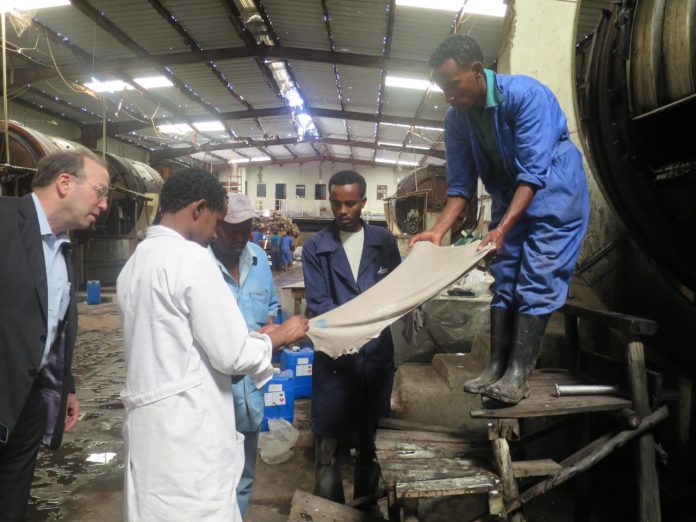There has been no shortage of recipes promulgated, tested (and discarded) with the declared intent of turning Africa into a truly independent continent:
- More than $1 trillion was poured into sub-Saharan Africa as development aid over the past 50 years. What is there to show for it?
- Gurus ensconced in the ivory towers of international organizations have flip-flopped between free market economy and planned capitalism as the economic engine “prescribed” for the continent to succeed.
- Education, a universal investment, prescribed a focus on primary school for all. Secondary was meant to follow, but received less attention. Tertiary was essentially ignored – which is now recognized as a major weakness.
- Positive news touted a number of African countries as being ready to outpace the developed world, with forecasts of 5 percent to 8 percent GDP growth. Falling commodity prices (oil, copper, etc.) have exposed a limited basis for growth, with little resilience.
If this sounds like the next re-boot of colonialism – isn’t it?
Forward thinking governments in some African countries (think Kenya, Uganda, Rwanda, Ghana, Ethiopia) understand they need to diversify the pillars on which their economies can grow and compete globally. Their governments are betting on information and communications technology to rev up their GDP and enable other economic sectors. As a result, these governments have invested in young, eager ICT-savvy ministries; included extensive, long-term ICT strategies in their national development plans; and incorporated programs to build out the still-lacking basic infrastructure (i.e. reliable electricity and high speed internet), so that it becomes accessible at an affordable price point for both business and individual consumers.
The intentions are clear, the hope resonates, but habits learned from decades of listening to development specialists who recommend planning for change but have no experience achieving change, remains.
Making lasting change happen would require an in-depth review of regulations, laws, and treaties – some of which date back to before independence – to create a meaningful economic blueprint and ecosystem that fosters entry into tomorrow’s global economy. Governments across the world find it easier to try and adapt yesterday’s rules to keep up with today’s needs; tomorrow will look after itself, or be someone else’s issue. There is no pressing reason to be different.
Yes, governments have a critical role in setting a policy framework to enable and support growth of particular segments of the economy, or, at a minimum, not get in the way. Today, other forces exist, including businesses (whether global or very local).
Many fail to recognize the scope of the entrepreneurial revolution, fueled through the Internet and occurring across demographic sectors. Governments and aid agencies, in trying to harness it for growth, should consider backing off and creating an ecosystem to enable the growth without trying to micromanage it.
At Kufikia, we believe that many African communities will be best served by a truly local movement: relying on private industry, in particular small and medium size business, to create jobs and set course for financial stability. Why?
There is the much-vaunted demographic dividend that is meant to provide an opportunity to African countries to have a proportionally large section of their population paying taxes and social security while consuming goods, in contrast to developed countries where the age pyramid has turned upside down. There is the spirit of young people, especially educated youths, to not accept a presumed, external imposed destiny. There is recognition that huge swaths of people are not even being considered for a seat at the table of progress, unless they step up to take it.
Statistics show that 80 percent of Kenyan and 75 percent of Uganda’s university graduates will not enter their chosen field of work. After scrimping and saving and working hard to do everything they were told was required as a pre-cursor for success, they will not have a career. They may get a job in the informal sector. In fact, there is just a one in four chance of finding security, of starting independent adult life.
So?
Combine the needs of college graduates in just Uganda and Kenya (and both countries have forward looking plans to invest in the ICT sector), with today’s opportunities in the IT and business-process-outsourcing sector, projected to reach $1 trillion this year. Consider the global, digital economy where work can be performed any time anywhere. The result is a nexus of forces that can truly be a game changer.
However, it is not enough to employ skilled IT engineers who make US$10,000 year. Vulnerable educated populations – those who make $5 a day, if they can find work at all, or who are doomed to fall under the poverty line of $1.25 – must be reached as well.
Enter “impact sourcing,” or socially responsible outsourcing, with its goal to provide work to those who can be trained to perform entry-level IT tasks.
This is an important distinguishing factor to traditional outsourcing practices. It is a transformational opportunity. By engaging in impact sourcing, companies can realize their business goals, show an actual social impact associated with doing so through the contracts they give, and achieve the long-sought change in life options in target communities.
Impact sourcing not only dramatically improves the lifestyle of a worker; it also positions the worker to help provide for an additional four close relatives. This achievement can be reflected in annual reports (CSR, sustainability, even UN Sustainable Development Goal reporting). It also organically builds a middle class with purchasing power, i.e., a new market not only for African companies, but also for U.S.- and EU-based exports, which the global economy desperately needs.
This model has already been implemented in small pockets across the globe, including in India, Nepal, Cambodia, and a few African countries, and it has been proven successful. The challenge now is: how can impact sourcing be scaled without creating another colonial reset?
Of course, it sounds like a cliché, but this is a real case of “think global, act local.” The impact-sourcing model for digital jobs relies on a globally connected economy, but local management and ownership are key to changing the trajectory of Africa.
Gerhard K. Bayer is the co-founder and CEO of Kufikia (www.kufikia.biz), a New York/Nairobi-based benefit corporation dedicated to bringing skills and digital job opportunities to disadvantaged youth in East Africa in an effort to break the cycle of dependence.













